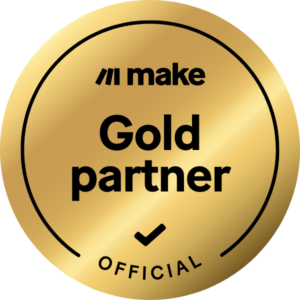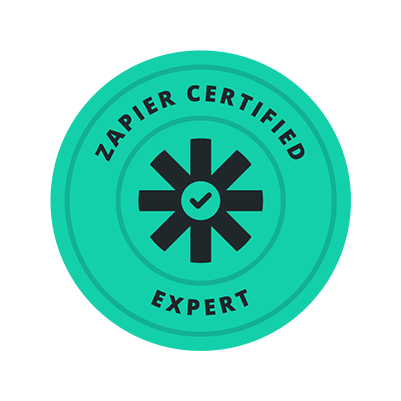SEO (Search Engine Optimization) is extremely important in order to get you website in the first pages of every search engine. It’s not only about optimizing one or two pages that might be more important, but about optimizing the entire website to make sure it appears in search results. The first step is choosing the appropriate SEO keywords depending on your area.
SEO Keywords
These keywords are the important words or phrases used in your site’s content that help people locate your website when they look up a query through a search engine. A well optimized website must include content in such a way that computers and search engines in particular can communicate with it. They are one of the main tools or elements of SEO.
This means that knowing how people look for the services, information or products related to your business is very important since this way you can optimize your website to be one of the top results, converting these web surfers into potential customers. On the other hand, if your website isn’t well optimized, other competitor websites are most likely to receive that traffic instead of you.
Thus, the first step when you decide it’s time to optimize your website, is crafting a list of keywords. If you think about running a search marketing campaign, SEO and keywords will be directly linked and since these keywords are the base of all your other SEO progress, investing time and money on making sure the SEO keywords you choose are relevant to your target audience means that’s time and money well spent. So don’t rush and put some effort into thinking about this carefully.
Now, before you start crafting your list, it’s necessary to have some clear knowledge about your website and intentions. First, what is your website about? Second, what is the purpose of your website? And third, how committed are you into putting in the effort? After you have determined the answer to these three questions, the real work begins.
Now, in order to optimize your entire website, there are some basic guidelines you can follow.
Find your Niche
Choose a primary topic and stick to it. Yes, your website can also have other content. However, try to focus on your main topic to find and cater to your niche. This is a crucial step, so take your time and do some keyword research before settling for a niche. There are many websites with specific interests out there, so don’t be afraid to take some risks and choose a topic you like even if it’s very specific. However, remember you still have to do research on it.
Mention your keyword. Everywhere
Well, almost everywhere. Make sure to include your main topic in the key elements of your website: the site’s title, description, keywords, description, your domain name, keywords, tagline, and most often, in your page titles, categories and content. If you’re using a blogging CMS, such as WordPress, you can use a plugin to change most of these elements. You can also optimize many of them through the General Settings.
Link to your internal pages
Many CMS (Content Management Systems) will do this for you, but in any case, make sure the most important pages are directly linked to your homepage and cross-linked between one another.
Include keywords in your permalinks
Some sites use permalink structures (the format for page and post links) that include numbers as the page identifiers. This is bad for SEO which is why you need to use a URL structure that has text in it. Also, make sure your keywords are included in your URLs. Remember it’s important to include your keywords throughout your website.
Make your website load quickly
Page load times are very important so it’s crucial to remove anything that slows down your website. Plugins, large images, flash and music players can be some of the things slowing down your website, so assess and reevaluate. There are many helpful websites that can aid you in evaluating your page loading speed.
Use keywords in your images
Make sure you also include your keywords in the images used throughout your website. These should have the topic in the attributes: title, description and alternative text.
Retitle the images if their current title doesn’t aid your SEO quest. Doing this is very important to help attract visitors via the Image Search.
Add links to other websites with similar content
This can be accomplished by including a blogroll, a list of links, or a resources page on your site.
Don’t do it on every other word or every sentence. Each time you add a link to an external site, you are at risk of driving away your traffic. But if it’s done correctly, it will be interpreted by search engines that people consider you an authority on that topic.
Add new content frequently
Posting new content often will show search engines that your website is dynamic, and these websites usually rank higher than static ones. This is why blogs and directory-style websites are often the top results.
Index your website in search engines
Many search engines will find and index your website content automatically. However, this isn’t always the case, so you have to make sure that these search engines index your website. You can do this manually if that’s the case, so people can find your content online.
Get inbound links
Getting websites to link to you is extremely important for SEO. This may not be something you can control, other than asking, which rarely works. However, there is something you can do: write great content. So spend some time and energy writing excellent content and find a way to guest post on external blogs. Whichever approach you choose, make sure you remember that inbound links are an important part of SEO.
Don’t change your domain
How old your domain name is, is very important for your website’s ranking on search engines. So try not to change it often nor create a new blog every couple of months simply because it’s not attracting as much attention as you would like. Be patient and wait for the Internet to recognize your website.
Write in a casual tone
Even if you follow all the guidelines above, if you write content that doesn’t sound casual or human-like. If your content doesn’t sound natural, your readers won’t be able to relate to you or your website, and search engines might not rank your blog higher.
If you have already started your blog and you didn’t apply any of the above, don’t despair. Many of the tips can be applied even if your blog already exists. And once you apply them, you can continue writing great content which will truly bring your website to the top of the search results.
Finally, if you’ve noticed that even after applying the items on this guide your website still isn’t succeeding in search engines, then you might need some professional assistance. We can provide the necessary aid and optimize your website for search engines. Feel free to reach out to us and get a quote to bring your website to the top results on the first page of all search engines.





Leave A Comment